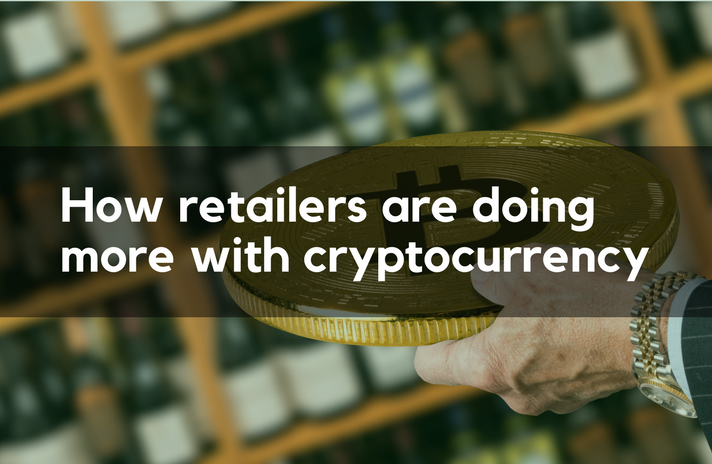
A few have developed their own coins — crypto and otherwise — to enjoy the perks of managing their own digital currency. Others are looking for ways to make bitcoin and its alternatives more palatable for mainstream commerce.
This listicle is compiled from reporting by PaymentsSource staff writers. Click the links in each item to read more.

Burger King's Russian recipe for crypto
The chain's WhopperCoin has debuted in Russia back in August, according to
With each purchase of a Whopper, customers receive WhopperCoin tokens through a digital wallet. These reward tokens can eventually be used to purchase Whoppers once the customer has collected enough coins. The tokens can also be transferred and traded online, so customers can sell them to new buyers.
"Now Whopper is not only [a] burger that people in 90 countries love. It's an investment tool as well," said Ivan Shestov, head of external communications at Burger King in Russia, quoted in the Waves release. "According to forecasts, cryptocurrency will increase exponentially in value. Eating Whoppers now is a strategy for financial prosperity tomorrow."

Amazon's homegrown currency for digital sales
The virtual currency, which works more like a virtual gift card, can be used to purchase games, apps and in-app virtual goods on the Kindle Fire tablet and within Amazon's app store.
Amazon gave every Kindle Fire tablet owner in the U.S. $5 worth of Amazon Coins upon the currency's launch, and has maintained the currency as a tool for purchasing apps and in-app content on Amazon platforms.
Though Amazon sells everything from magazines to

Facebook's failed attempt to unify payments across the globe
The strategy had a noble goal in mind: Rather than force app developers to price in-app content in different regional currencies, Facebook would handle the conversion itself and allow developers to price everything in Facebook Credits.
Facebook had matured as a gaming platform, particularly in its role as host to Zynga Game Network Inc.'s smash-hit gardening simulator Farmville, and Facebook's digital wallet system matured along with it. Though Farmville initially did not incorporate Facebook Credits, that changed in May of 201-. A few months earlier, Facebook added PayPal Inc.'s system as a funding mechanism for Facebook Credits.
Users paid 10 cents for each Credit, and then can "spend" the Credits online. This model is reminiscent of earlier virtual currencies such as Beenz and Flooz that, back in the dot-com heyday, tried to establish themselves as the monetary system of the Internet. Both eventually failed as consumers realized that purchasing these faux currencies was largely unnecessary, since they could use credit cards for most online purchases.
Facebook Credits faced a similar fate; by 2012 the company announced plans to move away from its virtual currency in favor of the real-money system it sought to replace.

A digital dental plan
One dental clinic in Switzerland and another in London began accepting payments for dental services with Dentacoin tokens back in August. These coins link to a program supporting customer loyalty and reviews via a mobile app.
The concept relies on establishing a cooperative community of dentists and patients with transparency in services provided and received.

What do iced tea and chicken wings have to do with blockchain?
There seems to be at least some substance to the change; the company announced that it would shift its corporate focus to "the exploration and investment in opportunities … of blockchain technology." And Long Blockchain isn't even the first soft drink company to see this effect — also last month, a fruit juice company called Future FinTech (formerly SkyPeople Fruit Juice) saw a 200% gain on rumors that it would get involved in blockchain and bitcoin.
And this month Chanticleer Holdings, which is a Hooters franchisee and minority investor, saw a 50% stock price boost after the company announced it's moving its rewards program to a blockchain, reports

Cryptocurrency designed for multiple merchants
One startup,
"The incentives aren't there to pay for something in an alternative currency right now," said Marshall Hayner, CEO and co-founder of Metal. "So our idea is to put a small amount of currency into a large number of hands."
The San Francisco-based Metal positions itself as a social P-to-P company, similar to Venmo. To encourage use, Metal rewards both the payer and payee 5% on every purchase. So a person who sends $100 through Metal would get the equivalent of $5 back in Metal's virtual currency, and the recipient would get $100 plus the equivalent of $5. "The idea is you get paid to make a payment," Hayner said.
Metal launched its software in October and plans to launch Metal Pay for consumers in February, followed by a merchant portal in third quarter of 2018. Metal plans to earn revenue through merchant processing fees—it expects to have different packages for merchants to choose from—and through revenue it can generate by accruing anonymous data from transactions that can be marketed to merchants and other companies.
The startup is attacking what it sees as a concentration of virtual currencies that hinders broader merchant acceptance. About

Bitcoin's Black Friday
At least 25 retailers that accept the virtual tender banded together in 2012 for a shopping event they dubbed
Besides discounts on goods and services, merchants also used the holiday to educate consumers on how to obtain the virtual currency and use it for transactions.
The deals advertised for 2012's Bitcoin Friday included $10 off the purchase of an ounce of gold at Coinabul; lower fees at the digital currency exchange Mt. Gox; and a 23% discount and free shots of Pampero Rum at Room 77, a restaurant in Berlin. Of those companies, only Room 77 appears to still be in operation today.





